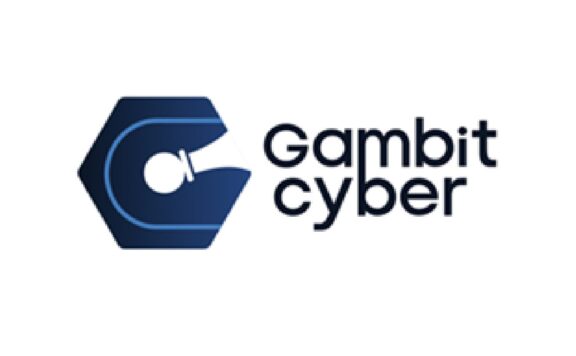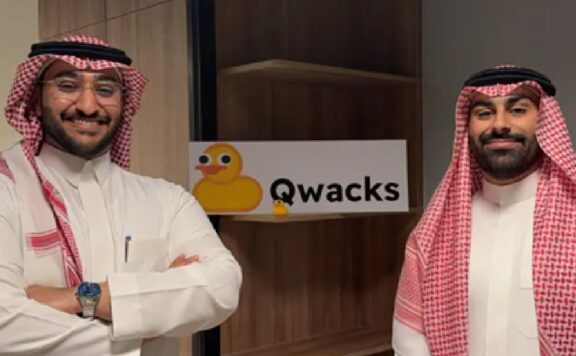The Berlin-based social start-up Kiron Open Higher Education delivers higher education to refugees. Through an innovative blended learning model that consists of online and offline elements, bureaucratic, financial and legal barriers are overcome.
Kiron is a crowdfunding project, conceived to give refugees unbureaucratic access to higher education. Programs are a combination of two years of online studies and one year of classroom studies at a partner university.
Tuition fees, language barriers and missing paperwork mean most young asylum-seekers are unable to continue studying in their host countries. However, a fast-growing project in Germany aims to remove the barriers to higher education and give forcibly displaced people a chance to fulfil their potential.
Two years after he arrived in Germany, Libyan asylum-seeker Hesham El-Hasadi had almost abandoned his dreams of a career. Political upheavals forced his family to flee their home in Benghazi overnight and he lost everything, even his education.
“In Germany they told me I had to start again, right back at the beginning with my school leaving exams,” said Hesham, 33, who studied computer science at Benghazi University.
However, without a printed copy of his degree certificate, his qualification was not recognised. “That really broke me down, I was completely lost. Then I heard about Kiron Open Higher Education. It was a good first step to get my education back.”
Last September, Hesham became one of a first group of 1,250 students to enrol with Kiron, an experimental NGO giving asylum-seekers free access to online courses from the world’s top universities.
The revolutionary scheme, dreamt up by German entrepreneurs Vincent Zimmer and Markus Kressler, was to compile two-year degree programs from a range of 600 online interactive lecture courses offered by universities, including the Massachusetts Institute of Technology, Cambridge, Harvard and Yale.
The Kiron team then matches these online lectures as closely as possible with on-campus modules offered by 23 partner universities. The partner universities award students credit points for completing Kiron courses, which count towards a final degree.
After two years of studying, armed with just a smartphone and an Internet connection, students with recognised refugee status are able to transfer to one of the partner campuses for their final year of study. Kiron expects its first graduates in business and economics, engineering, computer science and social sciences by the end of 2018.
Kressler and Zimmer hatched the idea two summers ago, when they began volunteering with asylum-seekers in Berlin while they were psychology students. They were shocked to find many educated newcomers were left to languish in legal limbo, unable to work or study while awaiting the results of their asylum applications.
“I was surprised that so many of them had studied before and just wanted to do something, to look forwards,” said Kressler, 26. “Dealing with the past doesn’t really make much sense if there’s nothing in life to look forward to. You learn the language, you do all that paperwork – what are you actually doing it for?
“It’s an identity change that happens from being an asylum-seeker to becoming a student, that’s a huge difference.
“From the beginning, our goal was to open up this universe of opportunities that a university can offer. These are clever, motivated people, They’ll give everything that they can to make it. We just have to give them small opportunities for an education, for a job; they will take it and make the best of it.”
For Hesham, who is still awaiting a final decision on whether he can stay in Germany long term, Kiron offered a meaningful path, despite the legal uncertainty.
“It was a way in until we get a final decision on our status,” said Hesham, who is following Kiron’s computer science track and completing courses in advanced coding. “We can still work on our education while we’re waiting. It really meant so much to us. It takes that worry away for a bit.”
Kiron engineering student Kashif Kazmi, 21, who is also waiting to hear whether he can stay in Germany, fled sectarian violence last spring near his home in Parachinar, a small Pakistani town on the Afghan border. He dreams of becoming an engineer for NASA. “We want to be on the campus, not in the camp,” he said.
Kashif also paid tribute to the Kiron program. “If it wasn’t for Kiron, I would be sleeping in my bed with nothing in my mind,” he said.
“We are not here just to sleep and eat. Now I have so many things to do. I can contribute, I can make my life, I can say where it goes.” He said said Germany’s new arrivals were a source of great potential.
“We want to flourish, we don’t want to be a crisis,” he said. “We want to be the solution, to do something for society, for the planet. For that, education is the only option. Kiron is hope for us, it means we get up in the morning in hope, we go to sleep in hope.”
Pakistani student Kashif Kazmi, 21, dreams of becoming an engineer for NASA. He warns against letting asylum-seekers’ potential go to waste. © Kiron Open Higher Education
Kiron also offers the chance for entrepreneurial asylum-seekers to connect with investors and employers. About half of Kiron students say they want to start their own businesses, and two former students have already used their new contacts to land jobs with German car maker BMW.
“In the end, all our channels should lead to a job,” said Kressler. “Companies want our students, they want to invest in new talents who speak different languages, have another business perspective on the world’s problems.”
Kiron’s novel education model is generating a good deal of excitement. In just under a year, the project has received over €2.5 million in donations and funding, and is using the money to establish new bases in Lebanon, Turkey and Jordan. Ultimately, the founders’ ambition is to offer education to all of the millions of displaced people worldwide.





